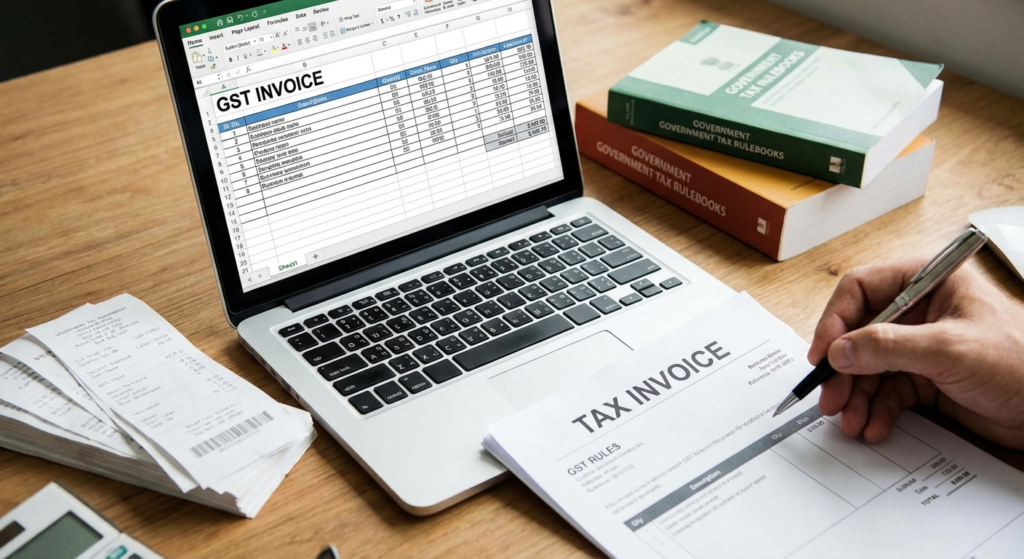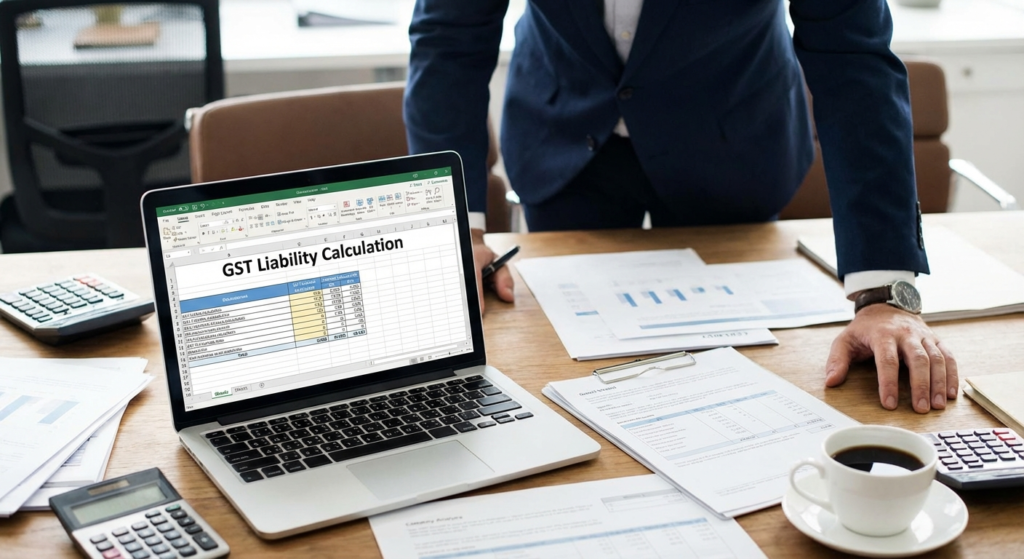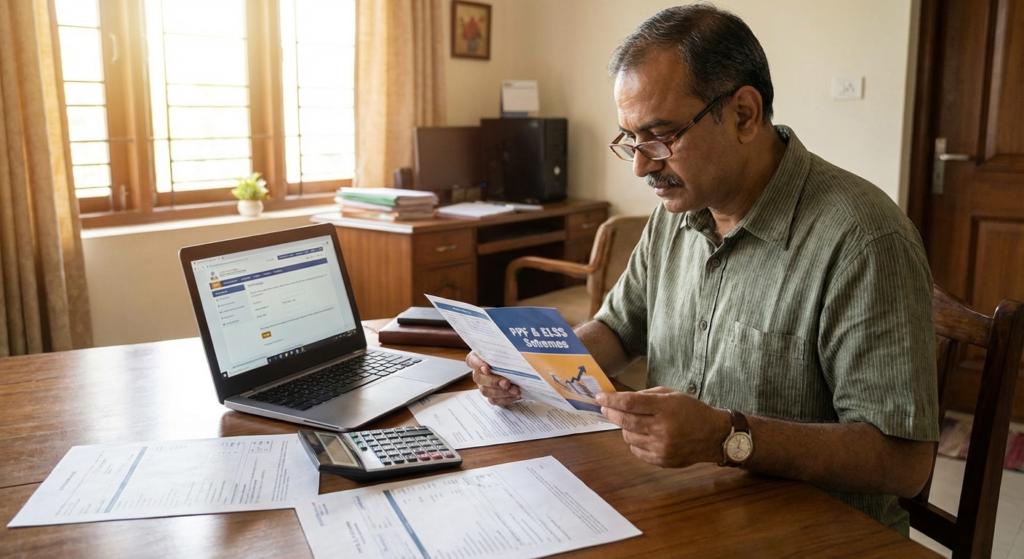Are you a business owner finding Section 43B(h) of the Income Tax Act hard to understand? You’re not the only one. This change, made in the Finance Act 2023, has caused a stir in the Indian business world, especially for Micro and Small Enterprises (MSEs).
Don’t worry – we’re here to help you in analysis of Section 43B(h) better. We’ll look into its goals, who it affects, and what it means for your business. By the end, you’ll know how to keep your taxes in check and maintain good relations with MSE suppliers.
Key Takeaways
- Section 43B(h) analysis: This rule says that if a business owes money to a small or micro company and doesn’t pay within the time limit (usually 45 days), they will have to pay more taxes.
- Businesses need to register under Udyam portal to get benefits from the MSME law. The business type depends on how much money they invest in Plant and Machinery and how much their turnover in a year.
- This rule of section 43B(h) is applicable only when you are purchasing goods from suppliers registred under Small and Micro enterprises only.
- It means, this rule is not applicable if you are purchasing goods from Medium and Large enterprises.
- The above two conditions will be applicable only when your supplier is registered under “Manufacturer” or “service” category in Udhyam Portal.
- It means, this rule of section 43B(h) is not applicable at all if your suppliers is registered under “Trader” Category in Udhyam Portal even if the supplier is Small, Micro, medium or large enterprises. This rule has no impact if your supplier is registered under “Trader” Category.
What is Section 43B(h) of the Income Tax Act?
Section 43B(h) of the Income Tax Act is a new rule. It helps to fix the problem of delayed payments to MSEs. Starting April 1, 2023, businesses owner must pay the due amount within the MSMED Act’s set timeframe which is 45 days and also within 15 days in case of no written agreement .
Introduction to Section 43B(h)
This new part of Section 43B says you can only get deduction of payments made to MSEs suppliers registered under the MSMED Act in the year you actually pay. The goal is to push big businesses to pay their MSME suppliers on time. This helps MSMEs get the cash they need to grow and survive.
Objective of Section 43B(h)
The main goal of Section 43B(h) is to encourage big companies to pay their MSE suppliers quickly. By doing this, it helps the MSME sector as a whole. It gives smaller businesses the chance to overcome market hurdles.
“Section 43B(h) benefits MSMEs by ensuring timely payments, better bargaining power, reduced disputes, while larger enterprises benefit from tax planning, compliance, and a strengthened MSME ecosystem.“
Applicability of Section 43B(h)
Section 43B(h) of the Income Tax Act applies when a business buys goods or services from Micro and Small Enterprises (MSEs). These MSEs must be registered under the Micro, Small and Medium Enterprises Development (MSMED) Act, 2006. Note, the buyer doesn’t need to be registered under the MSMED Act for this to apply. But, this section doesn’t cover payments to traders as per the MSMED Act’s definition of an enterprise. This new rule starts on April 1, 2023.
Buyer-Entities Covered Under Section 43B(h)
Businesses classified as Micro or Small by the MSMED Act, 2006 fall under Section 43B(h). Micro businesses have investments in plant/machinery under Rs.1 Crore and a turnover under Rs.5 Crores. Small businesses have investments up to Rs.10 Crores and a turnover under Rs.50 Crores. But, it doesn’t cover Medium enterprises or unregistered suppliers under the MSMED Act.
Businesses should check if their suppliers are MSME registered and keep track of payment deadlines. Not paying on time to MSEs can lead to higher taxes next year. This might result in compound interest and disallowing deductions under the Income Tax Act.
| Enterprise Type | Investment Limit | Turnover Limit | Covered Under Section 43B(h) |
|---|---|---|---|
| Micro Enterprise | Less than Rs. 1 crore | Less than Rs. 5 crore | Yes |
| Small Enterprise | Less than Rs. 10 crore | Less than Rs. 50 crore | Yes |
| Medium Enterprise | Less than Rs. 20 crore | Less than Rs. 100 crore | No |
| Unregistered Supplier | N/A | N/A | No |
“Section 43B(h) was inserted vide the Finance Act 2023 to ensure prompt payments to Micro and Small Enterprises (MSEs).“
analysis of section 43B(h) of Income Tax Act
The recent change to Section 43B of the Income Tax Act has big effects on Indian businesses. This new rule, brought in by the Finance Act 2023, helps Small and Micro Enterprises (MSMEs) by making sure they get paid on time starting from 2023-2024. Now, businesses can only deduct taxes for payments to MSME suppliers in the year they pay, if the payment is made on time.
Understanding the Provisions of Section 43B(h)
Businesses must follow certain payment rules with their MSME suppliers now. They can’t pay more than 45 days late even if agreed in writing, and payments without an agreement must be made within 15 days. MSMEs must get paid within 15 days, but up to 45 days if agreed in writing. In short, if there is an written agreement between buyer and supplier, than payment must be made as per agreement terms but if payment terms as defined in agreement is more than 45 days than the maximum time allowed for payment is 45 days only. In no case, payment terms can be more than 45 days for MSE suppliers. It’s important for MSMEs to prove they are indeed MSMEs to meet payment deadlines.
Implications for Businesses
The new rule has big effects on businesses. It encourages big companies to pay MSMEs on time, helping with cash flow and giving MSMEs more power. Big companies can also claim deductions for paying MSMEs in the same year, lowering their taxes. This rule also pushes for clear financial dealings and following the law, making businesses more responsible.
But, this rule has faced challenges. For example, Indian apparel makers say they could lose Rs 5,000 to Rs 7,000 crore in a quarter because of it. This shows how big the financial hit could be on businesses, especially those with many MSME suppliers.
The analysis of Section 43B(h) shows a push to help MSMEs and encourage responsible business. By making sure payments are on time and linking tax benefits to following the rules, the government wants to help MSMEs grow and thrive in India.
“The amendment to Section 43B of the Income Tax Act, 1961, introduced through the Finance Act, 2023, is set to be applicable for assessment from the assessment year 2024-25.”
Section 15 of the MSMED Act
The Micro, Small, and Medium Enterprises Development (MSMED) Act, 2006, is key to helping micro and small enterprises (MSEs) grow in India. Section 15 of this Act makes sure businesses pay their MSE suppliers on time.
Defining Key Terms
Under the MSMED Act, “goods” means all kinds of movable property, both tangible and intangible. “Supplier” is a Udyam-Registered MSE. This means Section 15’s rules apply when a buyer buys goods or services from these businesses.
Timelines for Payment
Section 15 sets clear payment times for buyers with MSE suppliers. If no agreement is written, payment is due within 15 days. But, if there’s a written agreement, payment should be made within 45 days at most.
This rule helps MSEs get paid on time, which boosts their cash flow and financial health. It also matches the MSME provision in Section 43B(h) of the Income Tax Act. This allows deductions for payments made within 45 days.
| Scenario | Payment Timeline |
|---|---|
| No Written Agreement | 15 days |
| Written Agreement | 45 days maximum |
The MSMED Act sets these payment rules to protect MSEs. It ensures they get paid on time for their goods and services. This helps them grow and stay strong.
Calculation of Investment and Turnover Limits
The MSME provision under 43B(h) of the Income Tax Act has clear rules for classifying businesses as micro, small, or medium. These rules look at the net investment in things like plant and machinery. They also consider the net annual turnover of the business.
Micro, Small, and Medium Enterprise Classification
Micro Enterprises have a net investment in plant and machinery or equipment of ₹1 Crore or less. Their net turnover should also be ₹5 Crores or less. Small Enterprises have a net investment of ₹10 Crores or less and a net turnover of ₹50 Crores or less. Medium Enterprises have a net investment of ₹50 Crores or less and a net turnover of ₹250 Crores or less.
Businesses must meet these investment and turnover limits to get the MSME benefits under Section 43B(h) of the Income Tax Act. It’s important for them to know their classification. This helps them use the benefits and follow the rules of the Act.
“Adhering to the MSME classification criteria is essential for businesses to leverage the benefits provided under Section 43B(h) of the Income Tax Act.”
Identification of MSE Suppliers
Businesses can check if their suppliers are MSMEs through the MSME Portal with the Udyam Registration Number. The Udyam Registration is key for MSEs to get various schemes and benefits. Section 43B(h) of the Income Tax Act limits deductions for payments to MSE suppliers, both registered and unregistered, using the “उपक्रमोपसंहारो” rule.
The Micro, Small, and Medium Enterprises Development Act, 2006 (MSMED Act), has 32 sections and has been active since October 2, 2006. It focuses on Delayed Payments to MSEs, covering sections 15 to 25. Section 15 says payments to MSEs must be made within 45 days as agreed in writing.
Udyam Registration for MSEs
The Udyam Registration Portal (www.udyamregistration.gov.in) gives MSEs a registration certificate with a unique Udyam Registration Number (URN). To register, you need PAN, Aadhaar, and GSTIN, unless you’re exempt under the CGST Act. Udyam Registration isn’t for past supplies, so it doesn’t cover supplies before the UR date.
Businesses should use the Udyam Verify feature to check their suppliers’ status. This ensures accurate MSE supplier identification and helps follow Section 43B(h) and the MSMED Act rules.
Compliance and Auditor Responsibilities
Auditors are key in making sure companies follow Section 43B(h) of the Income Tax Act. They check if suppliers are Micro, Small, and Medium Enterprises (MSMEs) and if payments are made on time. They also know about deductions and reversing them if payments are late.
Role of Auditors
Auditors are vital in making sure companies stick to Section 43B(h) rules. They look into if suppliers are correctly labeled as Micro or Small under the MSMED Act, 2006. They also check if payments are made within 45 days. Auditors help businesses find ways to deal with Section 43B(h) and keep finances clear.
If payments are late, auditors make sure the business adds the unpaid amount to their taxes. They also see if the business paid the extra interest to suppliers for the delay, as the MSMED Act says.
The auditor’s job in following Section 43B(h) is key for good financial management and following the law in India.
| Enterprise Classification | Investment in Plant & Machinery/Equipment | Annual Turnover | Applicability of Section 43B(h) |
|---|---|---|---|
| Micro | Up to ₹1 Crore | Up to ₹5 Crore | Yes |
| Small | Up to ₹10 Crore | Up to ₹50 Crore | Yes |
| Medium | Up to ₹50 Crore | Up to ₹250 Crore | No |
“Tax auditors are crucial in ensuring compliance with Section 43B(h) by monitoring outstanding payments and reporting findings accurately in the Tax Audit Report to uphold financial governance and regulatory compliance.”
Conclusion
Section 43B(h) of the Income Tax Act has brought big changes to help Micro and Small Enterprises (MSEs) in India. It encourages businesses to pay their bills on time. This helps both MSEs and bigger companies by improving cash flow and cutting down on disagreements. But, businesses now have to follow new rules and think about tax impacts.
Auditors are key in making sure Section 43B(h) works right and helping businesses with tax planning. This change aims to change how payments work and make MSEs more stable with their cash. Businesses can use these changes to follow tax rules better and plan ahead. MSEs will likely see better money management, fewer disputes, and smoother payment cycles.
The new Section 43B(h) is expected to make doing business in India more responsible and clear. It will help build stronger ties between companies and support the growth and lasting success of the MSME sector.
FAQ
What is Section 43B(h) of the Income Tax Act?
Section 43B(h) is a new rule added in the Finance Act 2023. It lets businesses deduct payments to Micro and Small Enterprises (MSEs) within certain time limits. These limits are set by the Micro, Small and Medium Enterprises Development (MSMED) Act, 2006.
What is the objective of Section 43B(h)?
The goal of Section 43B(h) is to encourage big companies to pay their dues to MSMEs on time. This is done by offering incentives for timely payments. The payment time limits are 15 days without an agreement and 45 days with one.
This ensures MSMEs get the cash they need quickly. This is key for their growth and survival.
Who is covered under Section 43B(h)?
Section 43B(h) applies when a business buys goods or services from Micro and Small enterprises. These enterprises must be registered under the MSMED Act, 2006. The buyer doesn’t need to be registered under the MSMED Act, 2006.
What are the key provisions of Section 43B(h)?
Section 43B(h) takes precedence over other Income Tax Act sections, except for a few. It allows a deduction for the year the payment is made to the micro or small enterprise. This is if the payment is made after the MSMED Act’s specified time limits.
What are the timelines for payment under the MSMED Act?
The MSMED Act sets payment deadlines at 45 days with a written agreement and 15 days without one. If there’s an agreement, the payment must be made as agreed, not over 45 days.
How are Micro, Small, and Medium Enterprises classified?
Micro Enterprises have less than ₹1 Crore in plant and machinery and a turnover under ₹5 Crores. Small Enterprises invest less than ₹10 Crores in machinery and have a turnover under ₹50 Crores. Medium Enterprises invest less than ₹50 Crores in machinery and have a turnover under ₹250 Crores.
How can businesses identify their MSME suppliers?
Businesses can check if their suppliers are MSMEs through the MSME Portal using their Udyam Registration Number. The Udyam Registration is a must for MSEs to get benefits and schemes.
What is the role of auditors in ensuring compliance with Section 43B(h)?
Auditors are key in making sure businesses follow Section 43B(h). They check if suppliers are MSMEs, if payments are on time, and if the rules are applied right. They also know about possible deductions and reversing them when payments are made.
Please Rate this post
Click to rate










